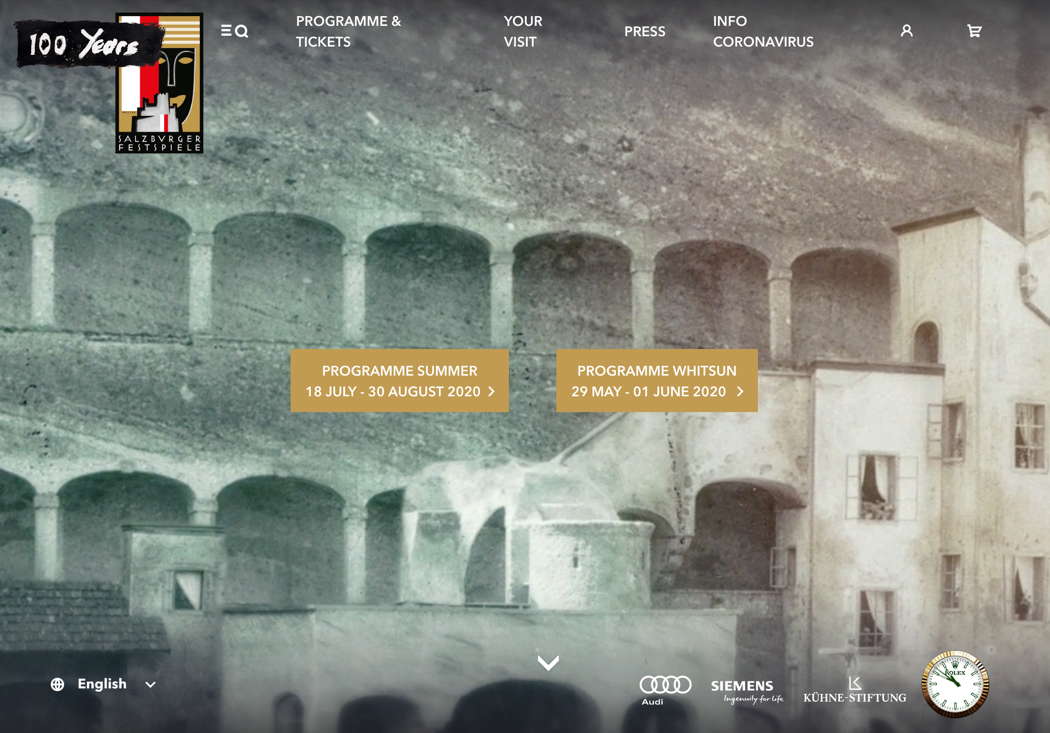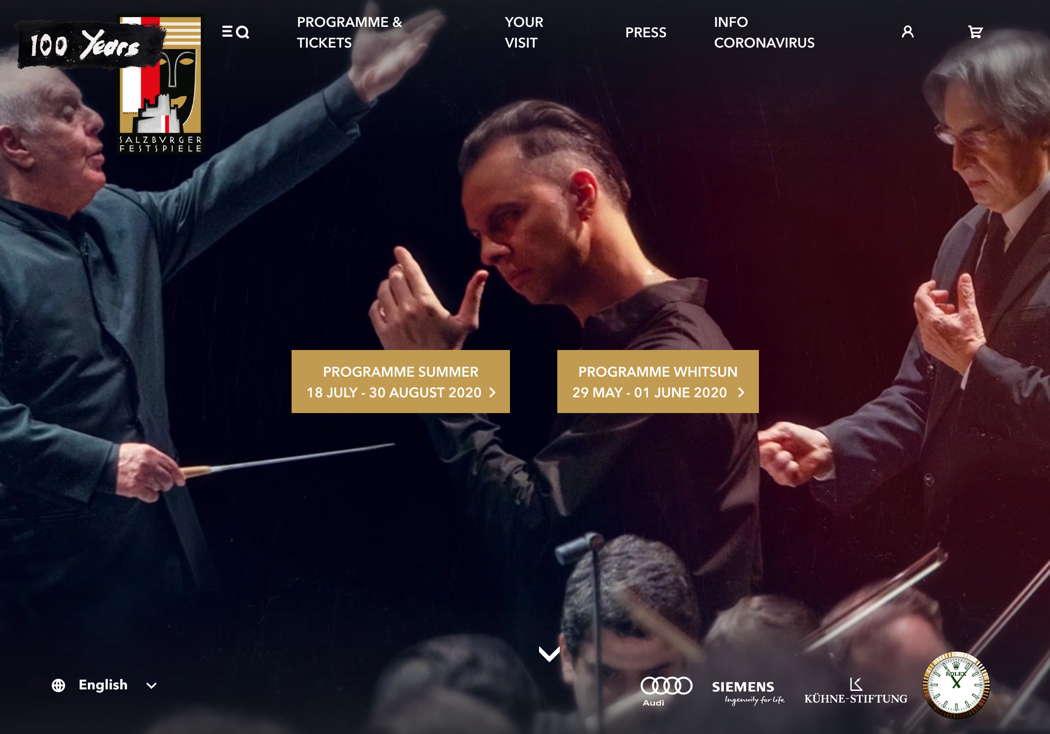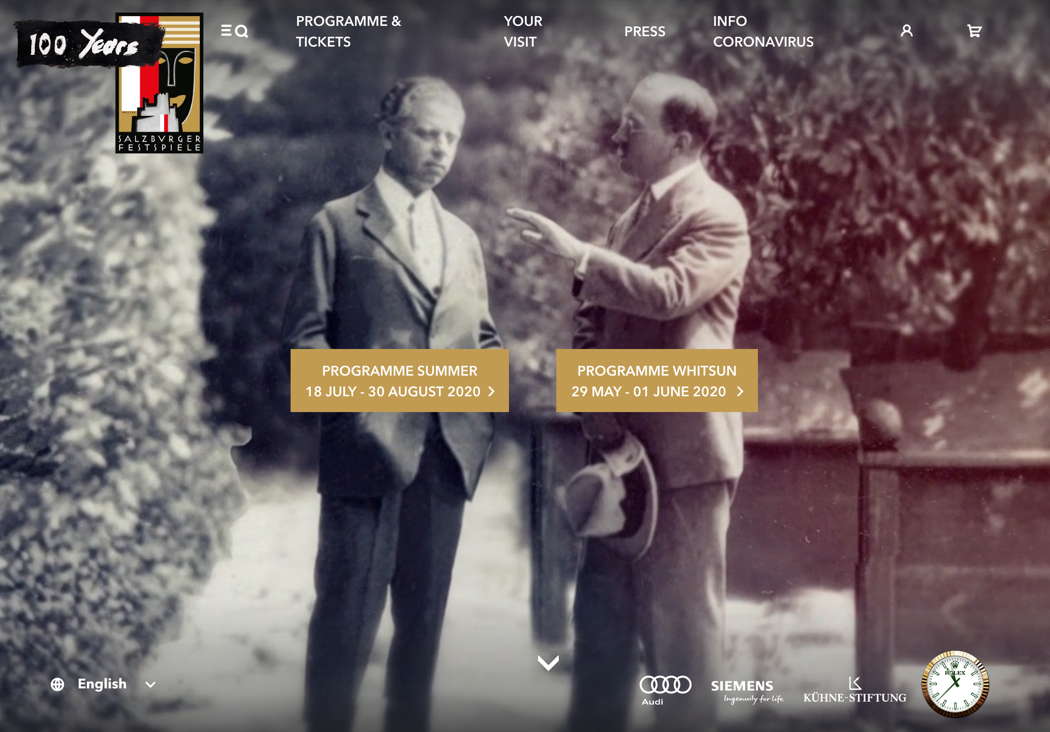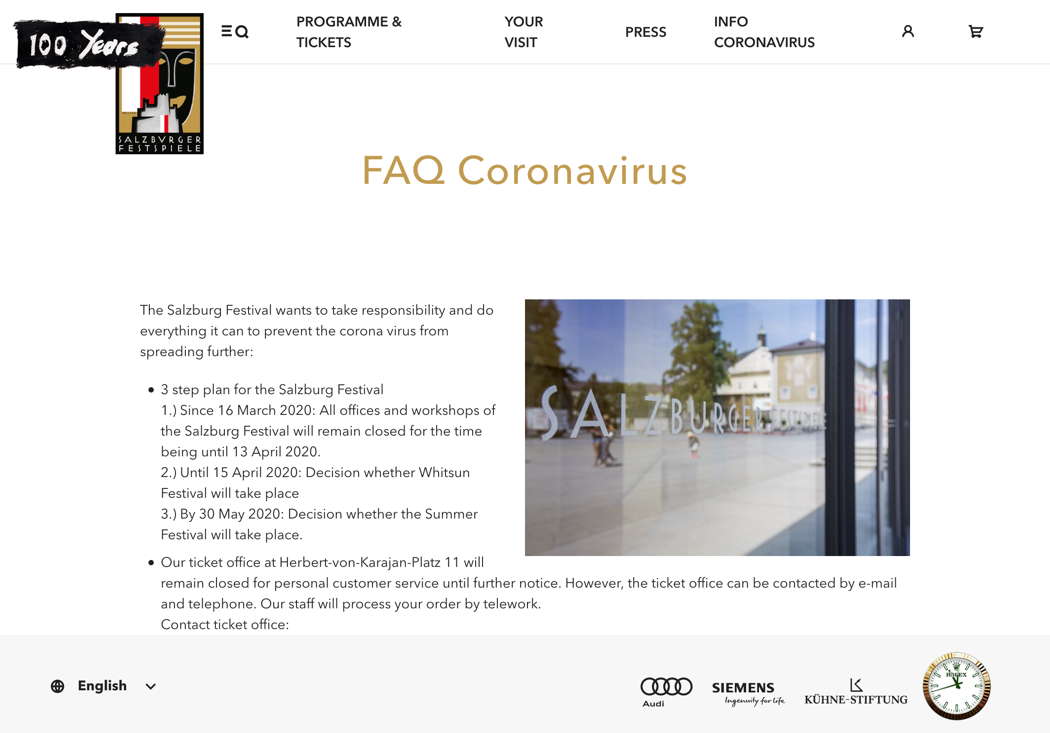 WORD SEARCH: Can you solve Allan Rae's classical music word search puzzles? We're currently publishing one per month.
WORD SEARCH: Can you solve Allan Rae's classical music word search puzzles? We're currently publishing one per month.
SALZBURG AND THE PANDEMIC

GIUSEPPE PENNISI wonders whether the
2020 Salzburg Summer Festival will take place
Will the 2020 Salzburg Festival take place? It depends, of course, on the Covid-19 pandemic that is having an adverse impact on all activities as well as on our daily lives and work.
This year's summer festival is quite special because it turns one hundred years old. The Centenary Festival 18 July-30 August 2020 has a theme that relates to the initial ideas of its 'founding fathers': the interaction between the individual and the community and the idea that society and the world can change through a community effort. The festival was founded as 'one of the first acts of peace' after the Great War. One hundred years later, the Ouverture spirituelle is in the sign of peace and such is the thread that connects the festival's various works, more than two hundred performances in fifteen different places for forty-four intense days with an audience expected from eighty countries of which half are non-Europeans.

A screenshot of the Salzburg Festival homepage, which shows continuously moving background video. This image shows the Felsenreitschule, the former riding school which is now a performance venue.
A world without peace is shown, for example, in some proposals of the festival, such as Mozart's Don Giovanni, Strauss' Elektra and Shakespeare's Richard III. On the other hand, in Mussorgsky's Boris Godunov, Nono's Intolerance 1960 and Handke's Zdenak Adamec, a world premiere, entire populations cross borders or seek to build communities in search of peace. The underlying theme of the festival is articulated in various ways. It includes, for example, Donizetti's Don Pasquale with his accent, on the one hand, of comparing generations and, on the other, of women's liberation, and Das Bergwerk zu Falun by von Hofmannsthal, in which happiness is found coming out of its own shell. The new production of Maria Stuarda by Schiller emphasizes that the confrontation/clash is between two queens, both tormented and in search of peace. There's also the new staging of Puccini's Tosca in which the two protagonists try to escape from an oppressive world.

Another screenshot of the Salzburg Festival homepage with continuously moving background video, showing (from left to right) conductors Daniel Baremboin, Yannick Nézet-Séguin and Riccardo Muti
The Centenary Festival is also a tribute to Hoffannsthal, Reinhard and Strauss, as their works are central to the event. For the Centennial, there will also be a series of special events whose full schedule will be available in May. The most important is a large exhibition, in preparation from the beginning of 2019, which from 25 April until 31 October 2020 will occupy various floors of the Neue Residenz - once the Palace of the Prince Archbishop. Entitled The Great Theatre of the World, the famous work of Calderon de la Barca staged, in the early years of the festival, by Reinhardt in the adaptation by Hofmannsthal, the exhibition traces the hundred years of the festival, through artifacts which are difficult to see. It is intended to be a journey through a hundred years of European culture to show that, even in the most difficult years - ie during Nazism - the festival has always been (or has always tried to remain) faithful to the original intentions of its 'founding fathers'.

Another screenshot of the Salzburg Festival homepage, showing two of the 'founding fathers' on the cover page of the festival's centenary programme
The Summer Festival Centenary does not directly involve the other official Salzburg festivals. However, this year the underlying themes are similar. The Whitsun Festival (which is a rib of the Summer Festival and has been directed for years by Cecilia Bartoli) is dedicated to the 'Colors of Time'. In its four intense days, Donizetti's Don Pasquale is presented, and later offered in the Summer, Gluck's Orphée in the Berlioz adaptation and a series of music concerts from the first half of the nineteenth century.
The key issue is if, due to the pandemic, these programs can be carried out. The Salzburg Festival management advises that there is a clearly defined plan with several levels to prepare decisions about whether the festivals at Whitsun and in the Summer can take place.

A screenshot of the Salzburg Festival's Coronavirus information page
The first level was triggered on 16 March 2020. Following guidance provided by the authorities, that day all festival theatres, offices and workshops have been closed, currently until 13 April. This means that all employees, including for example those in the ticket office, who can work from home are doing so via telecommuting, including the Directorate itself, of course. The second level requires a decision on 15 April. At that point a decision must be made whether the Whitsun Festival, which is scheduled from 29 May until 1 June 2020, can take place as planned. Artistic Director Markus Hinterhäuser is in continuous exchange about this with Cecilia Bartoli, the Whitsun Festival's artistic leader. She is full of optimism and already considering alternatives, should shortened rehearsal periods require programme changes.
The third level will become necessary on 30 May 2020. By this point, a decision must be reached whether, and possibly in which form, the centenary edition of the festival can take place. Of course, the festival has already worked out various scenarios for this. Artistically, the Salzburg Festival is well-prepared for both festivals, and able to make up for the phase of inactivity caused by present closures. Both decisions, however, do not depend on the festival's leadership, but on the development of the coronavirus pandemic and the political decisions required. In order to eradicate the virus, we must all stand together. Therefore, health takes priority over all artistic and economic issues. However, there is hope that the festival will be able to celebrate its anniversary with music and theatre.
Copyright © 31 March 2020
Giuseppe Pennisi,
Rome, Italy

FURTHER ARTICLES ABOUT THE SALZBURG FESTIVAL
FURTHER ARTICLES ABOUT THE COVID-19 PANDEMIC


